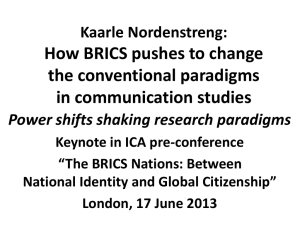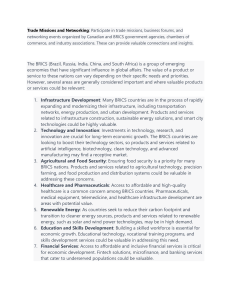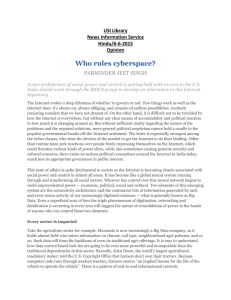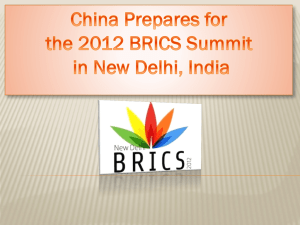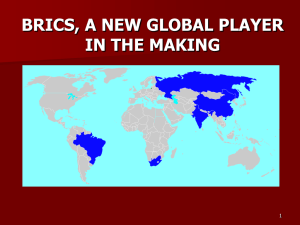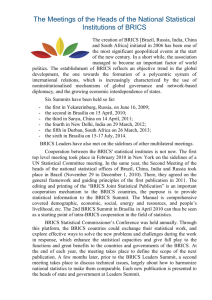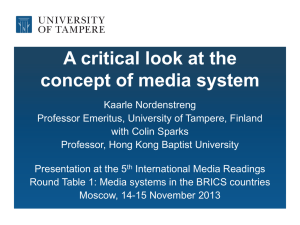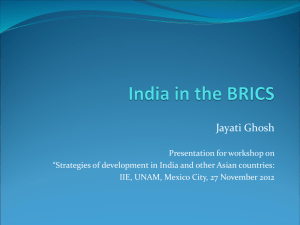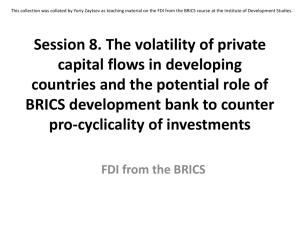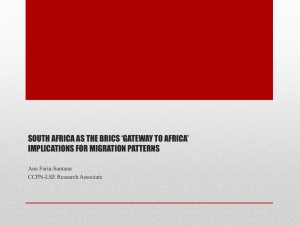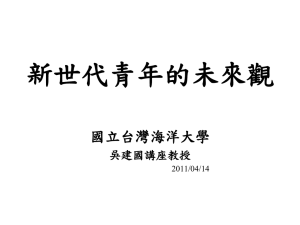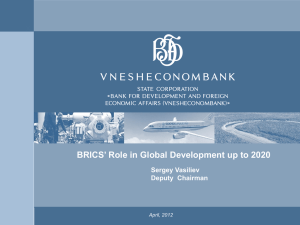WORD File
advertisement
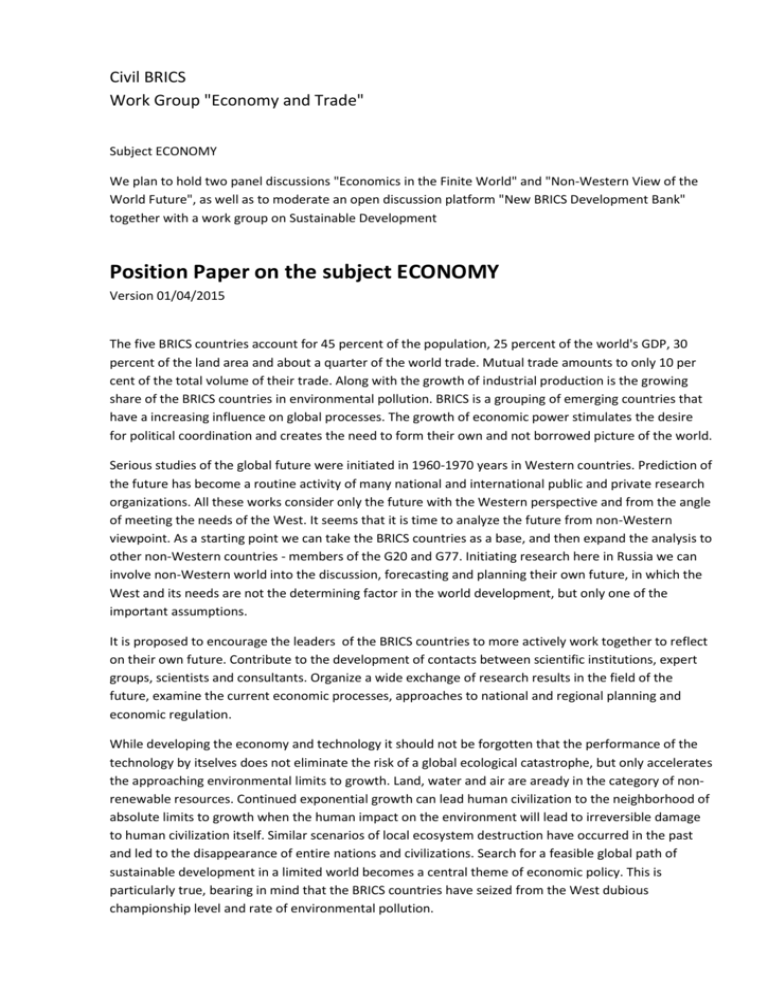
Civil BRICS Work Group "Economy and Trade" Subject ECONOMY We plan to hold two panel discussions "Economics in the Finite World" and "Non-Western View of the World Future", as well as to moderate an open discussion platform "New BRICS Development Bank" together with a work group on Sustainable Development Position Paper on the subject ECONOMY Version 01/04/2015 The five BRICS countries account for 45 percent of the population, 25 percent of the world's GDP, 30 percent of the land area and about a quarter of the world trade. Mutual trade amounts to only 10 per cent of the total volume of their trade. Along with the growth of industrial production is the growing share of the BRICS countries in environmental pollution. BRICS is a grouping of emerging countries that have a increasing influence on global processes. The growth of economic power stimulates the desire for political coordination and creates the need to form their own and not borrowed picture of the world. Serious studies of the global future were initiated in 1960-1970 years in Western countries. Prediction of the future has become a routine activity of many national and international public and private research organizations. All these works consider only the future with the Western perspective and from the angle of meeting the needs of the West. It seems that it is time to analyze the future from non-Western viewpoint. As a starting point we can take the BRICS countries as a base, and then expand the analysis to other non-Western countries - members of the G20 and G77. Initiating research here in Russia we can involve non-Western world into the discussion, forecasting and planning their own future, in which the West and its needs are not the determining factor in the world development, but only one of the important assumptions. It is proposed to encourage the leaders of the BRICS countries to more actively work together to reflect on their own future. Contribute to the development of contacts between scientific institutions, expert groups, scientists and consultants. Organize a wide exchange of research results in the field of the future, examine the current economic processes, approaches to national and regional planning and economic regulation. While developing the economy and technology it should not be forgotten that the performance of the technology by itselves does not eliminate the risk of a global ecological catastrophe, but only accelerates the approaching environmental limits to growth. Land, water and air are aready in the category of nonrenewable resources. Continued exponential growth can lead human civilization to the neighborhood of absolute limits to growth when the human impact on the environment will lead to irreversible damage to human civilization itself. Similar scenarios of local ecosystem destruction have occurred in the past and led to the disappearance of entire nations and civilizations. Search for a feasible global path of sustainable development in a limited world becomes a central theme of economic policy. This is particularly true, bearing in mind that the BRICS countries have seized from the West dubious championship level and rate of environmental pollution. We invite BRICS countries to discuss the possibility of creating economic levers to control the burden on the environment and to organize extensive contacts between the member states in this area, to initiate consultations on the development of industrial, residential and transportation infrastructure in order to harmonize the economy and environment. To continue the economic development we need adequate financial resources. Multilateral development banks (MDBs), including the Bank of BRICS, could play the unique catalytic role in mobilizing long-term investment financing through syndicated loans and other investments. A serious imbalance of financial resources and financial flows between countries discourage investment and economic development. Previous rounds of multilateral efforts were aimed at promoting free trade and harmonization of tariffs. Now it’s the time to facilitate the free movement of real investments and for harmonization of conditions of financing between the countries. While in developed countries the business can receive funds from various sources, including capital markets, private funding, relatively cheap loans, many emerging economies companies often operate in a monopoly market thus creating serious obstacles to financing. The domestic commodity markets were open as a result of previous multilateral agreements, but can we expect to enjoy a free competition, if the financial situation provides to inequality? As a result, instead of promoting a healthy and free competition, the business is forced to compete in an environment with very unequal initial conditions. In this regard, we believe that it is necessary to reduce the differences in financing terms and conditions between the countries and improve access to capital among BRICS countries and between BRICS and Western countries. Questions for discussion: 1. 2. 3. 4. 5. 6. 7. 8. 9. 10. 11. 12. 13. Population dynamics Standards of living Prospects for International Trade The Sources of Effective Demand The Role of International Currencies Regional Economic Blocs and Cooperation Between Them Environmental Limits to Growth Migration of Pollution Sources Profitability in an Era of Limits to Growth Predicting Global Environmental Changes Porfolio of BRICS Bank Projects The Prospects of Co-Financing Access to Financial Markets
